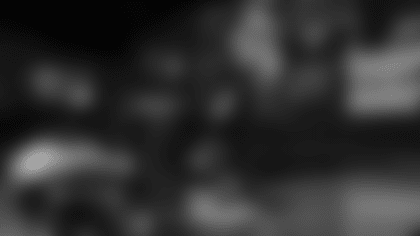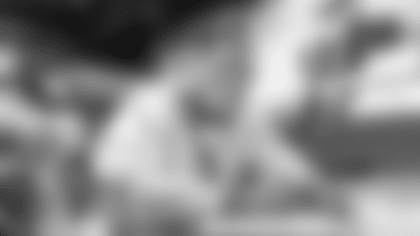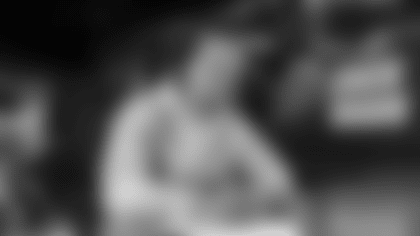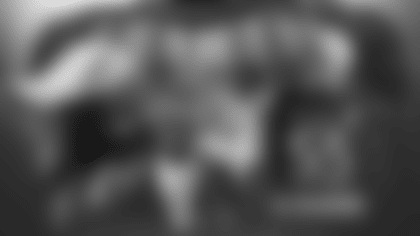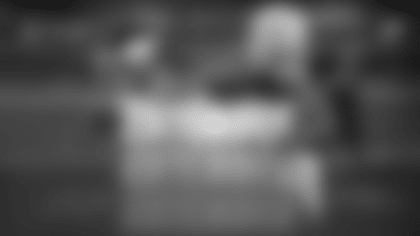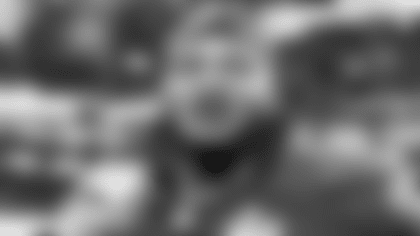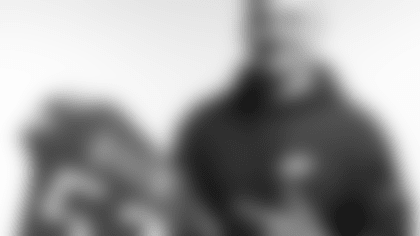I am in the presence of greatness. I know this. Everybody says so. Howard Mudd has been coaching in the NFL for 30 seasons, following an All-Pro career as an offensive lineman, the ravages of which can be seen in his body: Mudd has had five back surgeries and he limps from station to station in life in a bent-over manner, at times in extreme pain. His playing career earned him a spot on the NFL's All-Decade Team of the 1960s and introduced him to the man who would change his life forever.
More about that later. To have a chance to know Mudd is to know an extraordinary man, a remarkable mind. I can't pretend to know him, but for 51 minutes we spoke in his NovaCare Complex office discussing, mostly, his philosophy of coaching. What is the method to his greatness? What keeps him motivated at the age of 69 when he could easily spend his days on Puget Sound drifting along in the natural beauty rather than spending 20 hours, as he has done recently, on the secrets of the "unbalanced" offensive line?
He came to Philadelphia because Andy Reid wanted him here, because Reid had a grand vision for a restructured coaching staff and reached out and made his best pitch to Mudd, who had spent the previous year retired from the game. Mudd bought it all, hook, line and playoff sinker, and he speaks with the enthusiasm of a 40-year-old man in discussing what he has learned about the Eagles in the few months he has been here.
"The bottom line is that I'm very stimulated by the building, the people in the building, the character and culture here. The attitude is great. It's the Philadelphia Eagles," says Mudd. "If I was a consultant and didn't know anything and came here for a day, I would walk away and say, 'Man, there is no other organization in the NFL that has a better character or a better culture.' I was with a pretty good one in Indianapolis, so I have that perspective. There is a reason this team has the most wins in the NFC in the last decade, and that's because of the character and the culture here. There is a method and a commitment. That's what I believe.
"The second thing is, the team is better than Andy represented to me when he reached out to me. He said, 'We have a great future here.' I think this team is better than my perception of what he pitched to me. We have good players. That's exciting. There are very few pieces that have to be put in place. This is already a playoff team and now we add a couple of pieces here and there and we should be surprised if we are not in the big tournament where we want to be. I am used to being in situations where we are already in the playoffs and we still have two or three weeks to go in the regular season. There was never a doubt that we were going to be there, and that's how I feel about this team.
"The third part is the comfort level that I have with the coaches I'm working with. I'm comfortable with the system and the cooperation and the way we are going to go about doing things. We welcome ideas. We throw them on the table. I like that. We discuss and we listen and add to what is already a great system."
Mudd is here to make a good offensive line a great offensive line, the best offensive line, in fact. He is going to do things the way he does it: With great efficiency, with a strict approach to discipline and an attention to detail.
Mudd says "I stumbled into coaching" after his playing career ended. He dabbled in coaching at the college level at Stanford working with coaches like John Ralston and Mike White, and players like Jim Plunkett and Gene Washington. Mudd's mentor was the late Tiger Johnson, who coached him when Mudd played for San Francisco.
Coaching appealed to Mudd because he enjoyed the finer parts of teaching, because he has that kind of brain. Mudd majored in biology in college and thought about medical school. Once he was finished his playing career in the NFL, Mudd attended Law School until the calling of the coaching profession became too loud.
So he started at the collegiate level, at the University of California for a couple of years before making the leap to San Diego and the NFL in 1974.
And a coaching legend was born.
"The guy who coached me (Tiger Johnson) was a real tough guy, but very cerebral, in the sense of the way he taught the small, refined techniques that we used, but he also had a way of teaching us the book," said Mudd. "He had a blank page and he would incorporate the whole picture, the defense and how everything fit together along the offensive line. It was interesting to me. I had a good career, and I loved the small refinements – the techniques, the footwork – and while it wasn't that way in the 1960s, he was that way. And we were good, really good, as a group.
"During my playing days somewhere, I made the statement when I was involved with a book that was being written, that the game was played about 80 percent with your mind and 20 percent with your body. I still believe that, and that is appealing to me."
Mudd believes that it is his job to take the complexities that NFL defenses present -- all of the personnel packages, the different blitz angles, the scheme variances -- and make it as simple as possible for his offensive linemen. He wants them to play fast and to play sure and to execute the technique.
There is no time, says Mudd, for excuses. He has a list of excuses, in fact, ones he has heard from players over the years, and if one of his players starts in ready to assign blame on a play to something other than his own lack of excellence, Mudd is prepared to dismiss the conversation.
"A weak-minded player has no chance with me. This is a tough game and it is a tough world. The quarterback doesn't care if you feel sorry for yourself. He doesn't care. He's on his back. That's all he cares about," says Mudd. "It's not OK that he is on his back. What's OK is to recognize that what you did was a failure, so let's go fix it. I have a list of excuses, so I say to a player when he starts explaining what happened, 'Just give me a number. I have the list, about 10 or 12 of them.' Players say, 'The back knocked me off my block,' or, 'I slipped,' or, 'I did what you told me but it didn't work.' All excuses. None of them are reasons.
"Eventually, if you are going to survive in this world, you can't dance around the truth. You have to confront it and you have to be honest with yourself and if you want to excel, you have to commit yourself to that concept.
"Passion stimulates your brain. I think there is a perception that the ball coach is like the defensive line coach in 'The Waterboy.' Just go out and hit people real hard and you will be fine. It is much more refined to me. Within that refinement, there is a tremendous amount of stimulation. To me, it's all about solving a problem. 'What are you going to do to solve that problem?' The schemes that have been brought in to the game are very challenging. My job is to make complicated things as simple as possible, put them in boxes, so the player can function. That's pretty challenging and it can be stimulating. The players know exactly what is going on and know exactly what they are supposed to do can go out and play fast. I'm passionate and very driven to teach and to have my players excel."
"It's about having a focus. Am I a nurturing coach? I suppose, but not in a traditional sense. I'm kind of a hard ass. Standard of performance is very importance, obviously. If you are going to sign up with me to do it a certain way with a certain passion, then part of my job is to make sure you are doing your part. I'm kind of a hard ass that way. Is that nurturing? Yeah, probably. In life skills, it is. There are going to be storms in every person's life, and in games there are going to be storms. 'Go survive the storm.' (Defensive line coach and long-time friend Jim) Washburn and I talk about that. Commit yourself and do it and do it right."
With the NFL in a work stoppage, Mudd has not had a chance to work with his guys. When he does, he will stand before them and introduce himself and tell his players that he demands accountability and a team-first attitude and that they are going to follow the mantra that has made Mudd the best in the business.
"Uniformity is a big deal to me. We're going to do the same things the same way every time. We're going to do a few things and do those things extraordinarily well," says Mudd. "I'll live with that principle forever and ever and ever. I will tell the players this: We're doing to do the same drills on the first day of training camp that we do on the final day of practice before the Super Bowl. We're going to hit the same sled. We're going to do the same footwork and I'm going to make you do it right. My job is to make them do it right. That's the way the world is. You can either embrace it or not embrace it. But that's the way we're going to do things around here, because I know what works."







